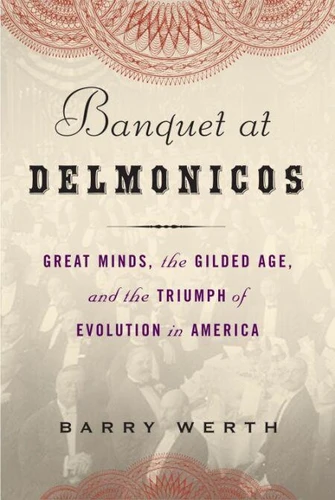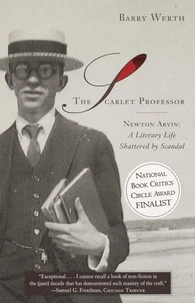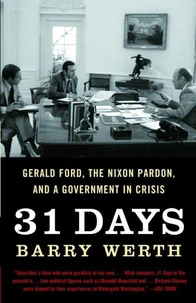Banquet at Delmonico's. Great Minds, the Gilded Age, and the Triumph of Evolution in America
Par :Formats :
Disponible dans votre compte client Decitre ou Furet du Nord dès validation de votre commande. Le format ePub protégé est :
- Compatible avec une lecture sur My Vivlio (smartphone, tablette, ordinateur)
- Compatible avec une lecture sur liseuses Vivlio
- Pour les liseuses autres que Vivlio, vous devez utiliser le logiciel Adobe Digital Edition. Non compatible avec la lecture sur les liseuses Kindle, Remarkable et Sony
- Non compatible avec un achat hors France métropolitaine
 , qui est-ce ?
, qui est-ce ?Notre partenaire de plateforme de lecture numérique où vous retrouverez l'ensemble de vos ebooks gratuitement
Pour en savoir plus sur nos ebooks, consultez notre aide en ligne ici
- Nombre de pages400
- FormatePub
- ISBN978-1-58836-798-3
- EAN9781588367983
- Date de parution06/01/2009
- Protection num.Adobe DRM
- Taille2 Mo
- Infos supplémentairesepub
- ÉditeurRandom House
Résumé
In Banquet at Delmonico's, Barry Werth, the acclaimed author of The Scarlet Professor, draws readers inside the circle of philosophers, scientists, politicians, businessmen, clergymen, and scholars who brought Charles Darwin's controversial ideas to America in the crucial years after the Civil War. The United States in the 1870s and '80s was deep in turmoil-a brash young nation torn by a great depression, mired in scandal and corruption, rocked by crises in government, violently conflicted over science and race, and fired up by spiritual and sexual upheavals.
Secularism was rising, most notably in academia. Evolution-and its catchphrase, "survival of the fittest"-animated and guided this Gilded Age. Darwin's theory of natural selection was extended to society and morals not by Darwin himself but by the English philosopher Herbert Spencer, father of "the Law of Equal Freedom, " which holds that "every man is free to do that which he wills, " provided it doesn't infringe on the equal freedom of others.
As this justification took root as a social, economic, and ethical doctrine, Spencer won numerous influential American disciples and allies, including industrialist Andrew Carnegie, clergyman Henry Ward Beecher, and political reformer Carl Schurz. Churches, campuses, and newspapers convulsed with debate over the proper role of government in regulating Americans' behavior, this country's place among nations, and, most explosively, the question of God's existence.
In late 1882, most of the main figures who brought about and popularized these developments gathered at Delmonico's, New York's most venerable restaurant, in an exclusive farewell dinner to honor Spencer and to toast the social applications of the theory of evolution. It was a historic celebration from which the repercussions still ripple throughout our society. Banquet at Delmonico's is social history at its finest, richest, and most appetizing, a brilliant narrative bristling with personal intrigue, tantalizing insights, and greater truths about American life and culture.
Secularism was rising, most notably in academia. Evolution-and its catchphrase, "survival of the fittest"-animated and guided this Gilded Age. Darwin's theory of natural selection was extended to society and morals not by Darwin himself but by the English philosopher Herbert Spencer, father of "the Law of Equal Freedom, " which holds that "every man is free to do that which he wills, " provided it doesn't infringe on the equal freedom of others.
As this justification took root as a social, economic, and ethical doctrine, Spencer won numerous influential American disciples and allies, including industrialist Andrew Carnegie, clergyman Henry Ward Beecher, and political reformer Carl Schurz. Churches, campuses, and newspapers convulsed with debate over the proper role of government in regulating Americans' behavior, this country's place among nations, and, most explosively, the question of God's existence.
In late 1882, most of the main figures who brought about and popularized these developments gathered at Delmonico's, New York's most venerable restaurant, in an exclusive farewell dinner to honor Spencer and to toast the social applications of the theory of evolution. It was a historic celebration from which the repercussions still ripple throughout our society. Banquet at Delmonico's is social history at its finest, richest, and most appetizing, a brilliant narrative bristling with personal intrigue, tantalizing insights, and greater truths about American life and culture.
In Banquet at Delmonico's, Barry Werth, the acclaimed author of The Scarlet Professor, draws readers inside the circle of philosophers, scientists, politicians, businessmen, clergymen, and scholars who brought Charles Darwin's controversial ideas to America in the crucial years after the Civil War. The United States in the 1870s and '80s was deep in turmoil-a brash young nation torn by a great depression, mired in scandal and corruption, rocked by crises in government, violently conflicted over science and race, and fired up by spiritual and sexual upheavals.
Secularism was rising, most notably in academia. Evolution-and its catchphrase, "survival of the fittest"-animated and guided this Gilded Age. Darwin's theory of natural selection was extended to society and morals not by Darwin himself but by the English philosopher Herbert Spencer, father of "the Law of Equal Freedom, " which holds that "every man is free to do that which he wills, " provided it doesn't infringe on the equal freedom of others.
As this justification took root as a social, economic, and ethical doctrine, Spencer won numerous influential American disciples and allies, including industrialist Andrew Carnegie, clergyman Henry Ward Beecher, and political reformer Carl Schurz. Churches, campuses, and newspapers convulsed with debate over the proper role of government in regulating Americans' behavior, this country's place among nations, and, most explosively, the question of God's existence.
In late 1882, most of the main figures who brought about and popularized these developments gathered at Delmonico's, New York's most venerable restaurant, in an exclusive farewell dinner to honor Spencer and to toast the social applications of the theory of evolution. It was a historic celebration from which the repercussions still ripple throughout our society. Banquet at Delmonico's is social history at its finest, richest, and most appetizing, a brilliant narrative bristling with personal intrigue, tantalizing insights, and greater truths about American life and culture.
Secularism was rising, most notably in academia. Evolution-and its catchphrase, "survival of the fittest"-animated and guided this Gilded Age. Darwin's theory of natural selection was extended to society and morals not by Darwin himself but by the English philosopher Herbert Spencer, father of "the Law of Equal Freedom, " which holds that "every man is free to do that which he wills, " provided it doesn't infringe on the equal freedom of others.
As this justification took root as a social, economic, and ethical doctrine, Spencer won numerous influential American disciples and allies, including industrialist Andrew Carnegie, clergyman Henry Ward Beecher, and political reformer Carl Schurz. Churches, campuses, and newspapers convulsed with debate over the proper role of government in regulating Americans' behavior, this country's place among nations, and, most explosively, the question of God's existence.
In late 1882, most of the main figures who brought about and popularized these developments gathered at Delmonico's, New York's most venerable restaurant, in an exclusive farewell dinner to honor Spencer and to toast the social applications of the theory of evolution. It was a historic celebration from which the repercussions still ripple throughout our society. Banquet at Delmonico's is social history at its finest, richest, and most appetizing, a brilliant narrative bristling with personal intrigue, tantalizing insights, and greater truths about American life and culture.





